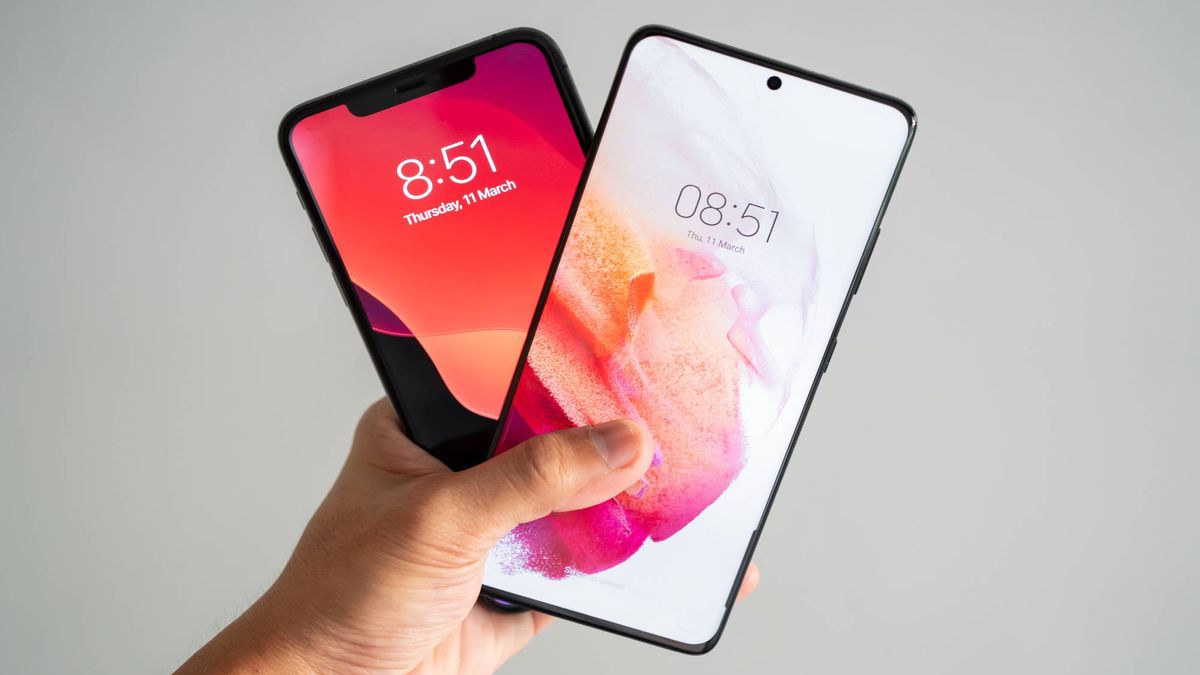 A sluggish phone is more than an annoyance—it can disrupt productivity and communication. With dependency on smartphones for countless tasks, a persistently slow device can be a substantial setback. Often, the cause of this slowdown is not immediately apparent, making it difficult to address. However, by pinpointing specific issues and implementing suitable remedies, you can restore your phone’s speed. This comprehensive guide outlines common factors contributing to a slow phone and provides practical solutions to each problem.
A sluggish phone is more than an annoyance—it can disrupt productivity and communication. With dependency on smartphones for countless tasks, a persistently slow device can be a substantial setback. Often, the cause of this slowdown is not immediately apparent, making it difficult to address. However, by pinpointing specific issues and implementing suitable remedies, you can restore your phone’s speed. This comprehensive guide outlines common factors contributing to a slow phone and provides practical solutions to each problem.
Overloaded Storage: The Speed Breaker
Identifying the Culprit
A lack of free storage space is a frequent cause of decreased phone performance. As your device’s internal memory fills up with photos, videos, apps, and system data, it will start to slow down. This occurs because the operating system needs space to create temporary files and for general operation—a congested storage hampers this process.
Cleaning House
To tackle this, visit the storage section in your phone’s settings to identify which files or apps take up the most space. Remove apps that you no longer need and transfer large media files to external storage solutions like microSD cards, USB drives, or cloud storage services. Additionally, consider using a cleaner app to help you identify and remove forgotten downloads, duplicate files, and unnecessary data left behind by apps.

Outdated Software: The Invisible Handicap
The Need for Updates
Running on an outdated operating system or using older versions of apps can significantly slow down your phone. Developers release updates that not only add new features but also enhance existing ones and optimize overall performance. Phones on older software versions are missing out on these improvements.
Stay Current
To address this, check your phone’s settings for any available system updates and ensure your apps are up to date by visiting your app store. Enabling automatic updates is a hassle-free way to keep your software current. Also, look at the version release notes to understand the benefits of each update, which often include speed enhancements and bug fixes.

Too Many Background Processes: The Silent Slower
Multitasking Overload
When you have multiple apps running or many processes taking place in the background, your phone diverts its resources to keep them active. This can leave little memory and processing power for the task at hand, causing your device to stutter and slow down.
Streamline Your Apps
Regularly closing apps you’re not using can free up system resources. Additionally, delving into the settings to understand which apps start automatically and use background data will allow you to prevent unnecessary resource consumption. Many smartphones come with built-in optimization tools that can help control these background processes. Use these tools to ensure that your phone prioritizes the apps you’re actively using.

Battery Health: The Underlying Issue
Power and Performance
The health of your phone’s battery is another unsuspecting victim in the battle for speed. Many smartphones automatically reduce performance to conserve an aging battery’s life. This can result in a slower phone as the device tries to extend the battery life by limiting performance.
Battery Care and Replacement
Regular checks on your battery’s health can be done through your device’s settings. If you find that the battery is the issue, getting a replacement may be the best solution to restore your phone’s speed. Contact the device manufacturer or a certified repair shop to discuss battery replacement options. In the interim, power-saving modes and closing energy-hungry apps can mitigate some slowdown.

Malware and Bloatware: Unwanted Guests
The Hidden Threats
Malware is not just a problem for computers; it can also affect smartphones. These malicious programs can run unnoticed in the background, slowing down your device and compromising your personal information. Bloatware, while not necessarily malicious, is software pre-installed on your phone that you don’t need and that can also slow down the system.
Clean and Protect
A trustworthy antivirus app can be worth its weight in gold. Run regular scans to keep your phone free from malware. Moreover, review your installed apps and uninstall any that you do not need or did not install yourself. For persistent performance issues, consider doing a factory reset after backing up your essential data, but remember that this should be a last resort and may not address all potential issues with bloatware.
Memory Management: The Key to Swift Operations
Background Apps and RAM Usage
Another frequently overlooked aspect of phone performance is RAM (Random Access Memory) usage. RAM is where your phone holds the data it needs to access quickly. When it’s full, your phone has to work harder and becomes slower. Too many active apps or processes can fill up your RAM and reduce the speed of your device.
Effective App Hygiene
Take control of your RAM by regularly closing apps that you’re not actively using, especially those that tend to run in the background or consume significant memory. Some devices offer a built-in RAM management tool in the settings that can suggest optimizations. You can also use third-party apps that help manage memory, but be cautious as some might actually contribute to the problem rather than solve it.
Hardware Limitations: Recognizing Phone’s Capacity
Realistic Expectations from Your Device
Not all phones are created equal. Entry-level or older models may not have the processing power and memory to run the latest software or apps smoothly. Pushing such devices beyond their limits can result in sluggish performance.
Adjust Your Usage or Upgrade
Understand the capabilities of your phone and adjust your usage accordingly. Removing heavy-duty apps that are not essential for your daily needs can help. However, if slowdowns persist and negatively impact your user experience, it may be time to consider upgrading to a new device that can meet your performance needs.
Maintenance Routines: Keeping Your Phone Healthy
Regular Checks and Balances
Regular maintenance is the secret to sustained phone speed. This includes periodically reviewing your apps, updating your software, checking on your battery and storage status, and scanning for malware. It’s akin to getting regular tune-ups for a car; preventative care can keep your device running better for longer.
Embrace Maintenance Apps
There are many apps available that can automate aspects of this maintenance routine. They can schedule regular cleanups, manage updates, and monitor the overall health of your smartphone. However, choose these apps wisely, focusing on those from reputable developers and with positive user feedback to avoid inadvertently adding more bloat to your device.
Reviving Your Phone’s Speed
A slow phone is a common problem, but it’s often one that you can fix yourself. Consistently manage your phone’s storage, keep your operating system and apps updated, limit background processes, maintain your battery, and keep your device clean from malware and bloatware. By taking these steps, you can significantly improve your phone’s performance. Regular maintenance will ensure that your device remains efficient, secure, and capable of keeping up with the demands of your digital life.
